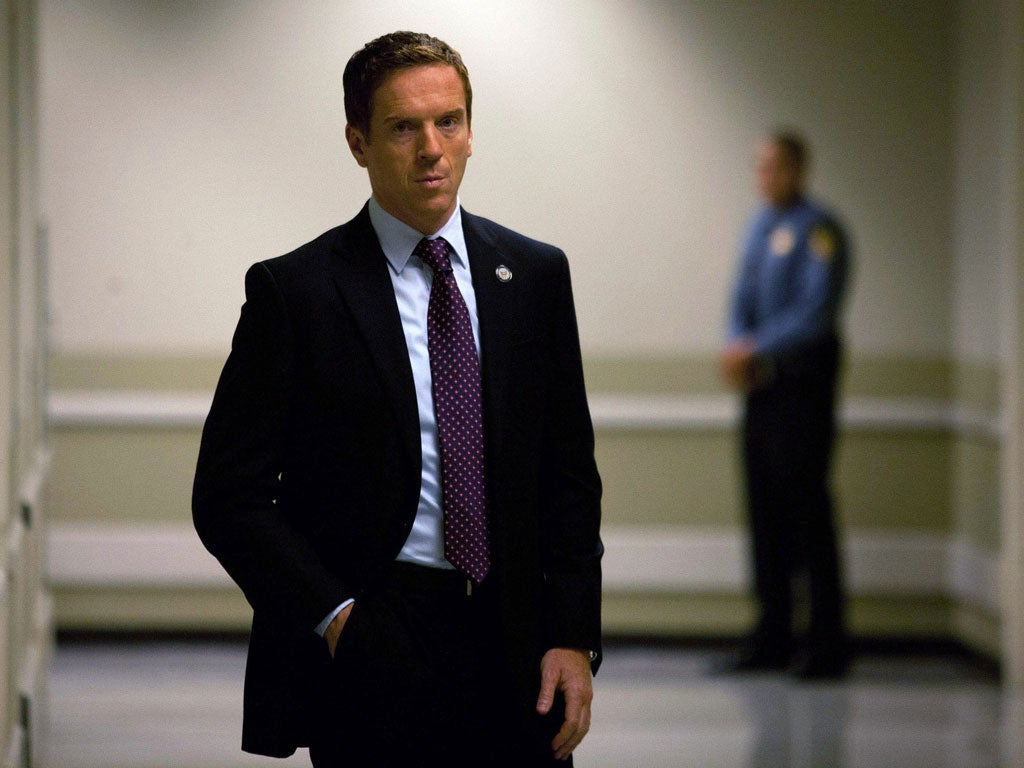John McCarthy brands 'Homeland' plot 'ridiculous'

Your support helps us to tell the story
From reproductive rights to climate change to Big Tech, The Independent is on the ground when the story is developing. Whether it's investigating the financials of Elon Musk's pro-Trump PAC or producing our latest documentary, 'The A Word', which shines a light on the American women fighting for reproductive rights, we know how important it is to parse out the facts from the messaging.
At such a critical moment in US history, we need reporters on the ground. Your donation allows us to keep sending journalists to speak to both sides of the story.
The Independent is trusted by Americans across the entire political spectrum. And unlike many other quality news outlets, we choose not to lock Americans out of our reporting and analysis with paywalls. We believe quality journalism should be available to everyone, paid for by those who can afford it.
Your support makes all the difference.Former hostage John McCarthy has voiced his concern over violent scenes in Homeland, the hit drama about a US war hero turned by al Qaida, and dubbed part of the show's plot "ridiculous".
The US drama is just about to return on Channel 4 with a second series, having scooped a clutch of Emmy awards, including a best actor gong for its British star Damian Lewis.
Lewis, who plays US marine Nicholas Brody, has said he took inspiration for his character from An Evil Cradling, Brian Keenan's book on the four-and-a-half years he was held hostage in Lebanon by terror group Islamic Jihad.
Keenan's cellmate for much of that time was British journalist and broadcaster McCarthy, who was taken at gunpoint from a Beirut street in 1986 as he drove to the airport to catch a flight home.
McCarthy hinted that he disapproved of the scenes in Homeland, where Brody, who returns to the US as an al Qaida sleeper agent having been held captive in Iraq, appears to have flashbacks of beating a fellow marine to death to appease his captors.
He told the Radio Times: "My concern is that, with the flashbacks and hints and really horrible violence we see, his conversion is almost like titillation - let's keep watching... Did he really kill his comrade?"
He said of the flashback scenes: "It all seems so mad, the whole bloody plot. It seems ridiculous.
"But watching someone being beaten to death in that way, even in the fairly snippety bits I've seen - it is absolutely grotesque and makes your stomach churn.
"I do fear we're not really appreciating the absolute horror of what someone's going through there. Anybody who has been severely beaten wouldn't see that as entertainment. They would be feeling, 'Oh my God, oh my God'.
"Stockholm Syndrome (the psychological phenomenon where hostages excuse and even defend their captors) can happen, of course, but I don't think it would happen through appalling torture frankly. I really don't think you could beat your mate to death."
McCarthy, who was debriefed by MI6 and the CIA when he returned to Britain, said the scenes showing Brody being questioned by the CIA did not ring true and were "an unrealistic portrayal of somebody re-entering society".
He said of being a hostage: "We were beaten up, kept in a darkened room under ground. We were chained and always made to wear blindfolds when the people holding us were in the same room.
"The moves between prisons and locations were terrifying. I was there, terrified in a cell, with a guy I knew could abuse me pacing up and down outside. I'd be heart in mouth, maybe looking across the cell at Brian thinking, 'What's going to happen next? How long can I hang on to my sanity with this going on?'
"It was a feeling of being utterly beyond any shout for help, any sense of justice, and totally vulnerable. I don't often think about it, I'm lucky my life's moved on, but as I think about it now, I'm going cold inside remembering what a frightened - well, almost what a frightened little boy I was then... utterly frightened."
He told the magazine: "We were torture victims, but there was no identification with their aims...We saw the situation in Lebanon....But that didn't make us support what they were doing in any way. That simply didn't happen."
PA
Join our commenting forum
Join thought-provoking conversations, follow other Independent readers and see their replies
Comments